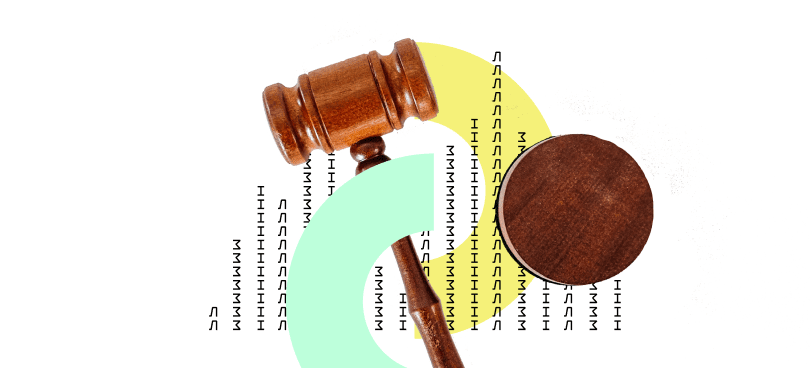Parliamentary reform was initiated in 2016 with the Roadmap for Internal Reform and Increasing the Institutional Capacity of the Verkhovna Rada of Ukraine. This reform is still incomplete and has been implemented in less than half. Therefore, we can welcome the statements of the leadership of the Verkhovna Rada regarding the need to implement this reform by at least 70-80%. But to what extent has the reform been implemented so far?
Our methodology estimates its implementation at 45.7% (95 points out of a possible 208) as of July 2021 System monitoring has not been carried out since that time. However, superficial monitoring shows a lack of noticeable progress in reform implementation. On some points, regression is observed, for example, at the end of the 6th session, the Verkhovna Rada once again postponed the transition to electronic document management. . Compared to March 2019, progress has advanced by only 4%. Following the Ukrainian tradition, this can be called “stomping in place”. Therefore, the recommendations given in 2019 are still relevant today:
- Formation of a single coordination centre for parliamentary reform.
- Implementation of systematic work on implementing recommendations: updating the Roadmap and the priority action plan for its implementation.
- Approval of the Concept of ‘End-to-End’ Legislative Process (agreed with all subjects of the legislative initiative), which would show the target system of development and decision-making, would determine the critical stages of the implementation of the reform and would outline the effective ways of implementing individual components of the reform to ensure the coherence of efforts of all subjects of the legislative initiative.
- Ensuring effective communication regarding parliamentary reform within parliamentary factions and groups and between dialogue platforms.
- Establishing communication with the Cabinet of Ministers of Ukraine for better coordination of reformation processes in the parliament and the government.
- Bringing the Regulations of the Verkhovna Rada into compliance with the Constitution of Ukraine.
- Adoption of the Law “On Parliamentary Service” as a whole.
- Adoption of the Code of Conduct.
The main problem is the lack of systematicity in reforming the Verkhovna Rada. This especially applies to the MPs themselves. If the reforms that concerned the Apparatus of the VRU and depended on the decision of the leadership of the Apparatus (as well as on the political leadership of the VRU) were advanced more or less comprehensively and considering the recommendations of the Road Map, then the directions that relate to the rules and formats of the work of the MPs themselves have either deteriorated comparing with 2019 or remained approximately at the same level. And where improvements did occur, they were more a response to current challenges and not overly based on the recommendations of the Road Map.
A clear indicator of this is that the Reform Road Map was not revised in the 9th convocation and was not updated according to today’s challenges. Although in some directions, the Road Map is outdated and has lost its relevance.
The main improvements regarding the state of implementation of the Road Map recommendations concerned the VRU’s Apparatus. It can be noted here:
- Approval of the Personnel Potential Development Strategy;
- Introduction of electronic document management (although still in parallel with paper management);
- Audit of activities carried out by the Accounting Chamber;
- Communication strategy implementation activities;
- Adoption of the draft law “On Parliamentary Service” in the first reading.
The improvement in the overall assessment of the state of implementation of the recommendations can be explained by the fact that the spheres related to the Apparatus improved more than the spheres directly related to the MPs deteriorated.
Some positive changes were also related to the work of parliamentarians: amendments to the Regulations of the Verkhovna Rada and implementation of the practice of preparing the Plan of legislative works, publication of parliamentary requests, reduction of the number of committees (although there are problems with their areas of responsibility), attempts to improve the control function.
It is worth remembering that our methodology considers the process of implementation of recommendations, so the reform is estimated by as much as 45.7%.
However, if we considered only fully implemented recommendations (that is, focused on the result, not the process), then the state of implementation could be estimated at only 10%.
There are only five fully implemented recommendations (that is, less than 10% of the 52 recommendations), and all of them concern the Apparatus of the Verkhovna Rada. These are the recommendations:
- 23 (Implementation of Information and Communication Technologies strategy);
- 26 (the Verkhovna Rada of Ukraine must develop and approve a “digital” strategy);
- 35 (audit by the Accounting Chamber);
- 39 (Implementation in the VRU of the personnel potential development strategy);
- 40 (Short-term internship should be separated from the internship of public servants due to employment conditions).
What to implement in the first place?
The resource for increasing the assessment of the implementation of the Road Map recommendations, with the assistance of the spheres relevant to the Apparatus of the VRU, has been primarily exhausted (since most of the recommendations have been implemented or almost implemented). Therefore, to increase the share of implemented recommendations at the next evaluation, it will be necessary to implement other Road Map recommendations. In particular, the blocks “Legislative capacity and law-making process”, “Coalition, opposition and dialogue”, and “Adherence to ethical norms and standards of conduct” have a significant potential for implementation because less than a third of the recommendations in them have been implemented.
First of all, it is necessary to implement the main recommendations that concern the main function of the Verkhovna Rada – the law-making process. Of course, it is easier to implement the recommendations that concern the form of work of the Verkhovna Rada, such as electronic, instead of paper, form of document circulation.
But such formal recommendations should not replace more important ones – implementation of the Concept of ‘End-to-End’ Legislative Process, improvement of expert and analytical support of draft laws, improvement of the control function and many other recommendations.
Цей матеріал підготовано за фінансової підтримки Швеції.















